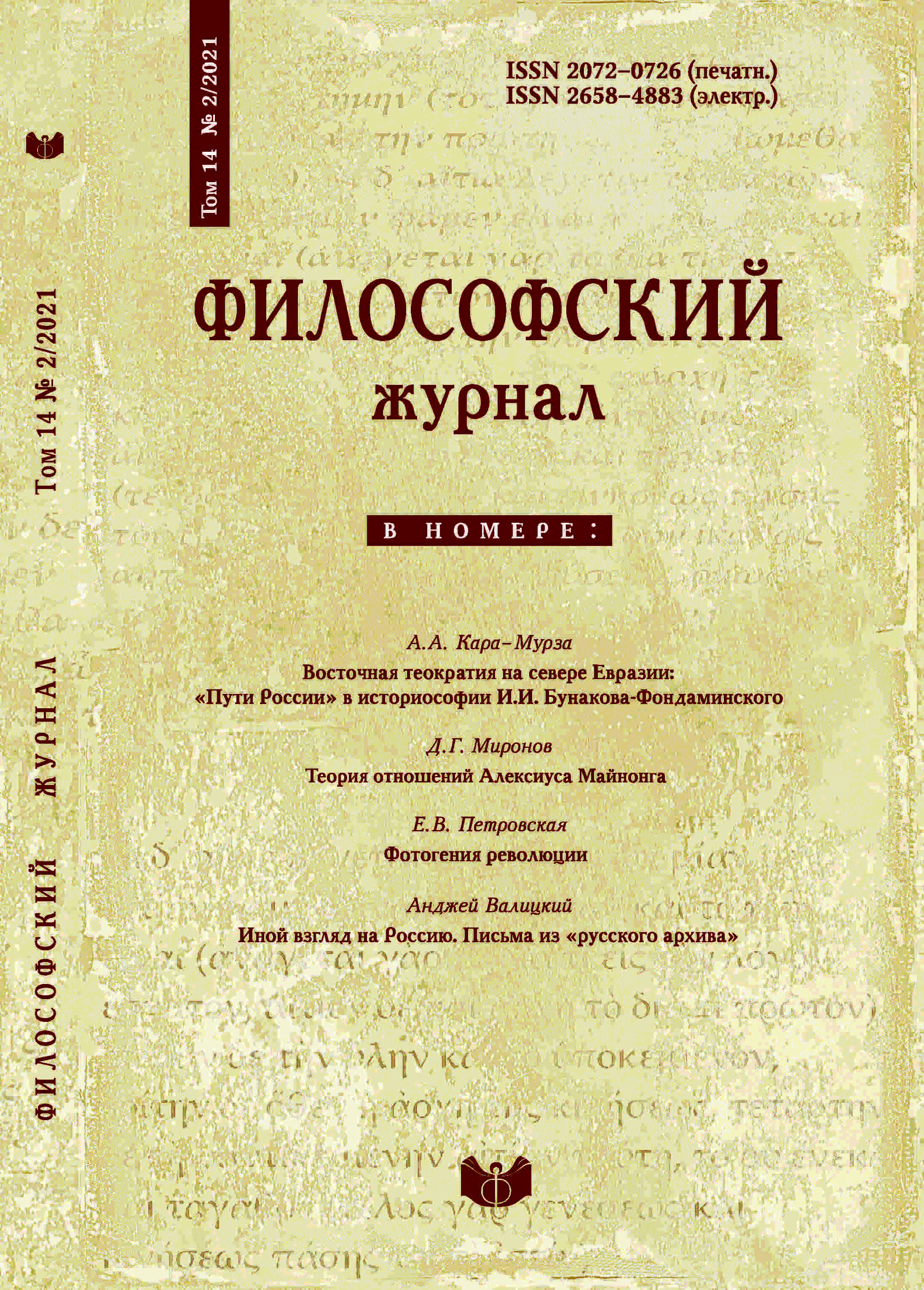Eastern theocracy in Northern Eurasia: “The Ways of Russia” in the historiosophy of I. I. Bunakov-Fondaminsky
DOI:
https://doi.org/10.21146/2072-0726-2021-14-2-5-20Keywords:
Bunakov-Fondaminsky, Russia, philosophy, history, civilizational identity, emigrationAbstract
The article examines the question of the evolution of the philosophical and historical views of the Russian intellectual and politician Ilya Isidorovich Fondaminsky (1880–1942; literary and political pseudonym “Bunakov”). A native of a Jewish merchant family who studied philosophy in Berlin and Heidelberg and an active socialist-revolutionary, I.I. Bunakov-Fondaminsky became one of the key figures of the Russian emigration. During the German occupation of France, he received Orthodox baptism and ended his life in a Nazi concentration camp (in 2004, he was canonized by the Patriarchate of Constantinople). The author focuses on the historiosophical concept of “Ways of Russia”, set forth by I.I. Bunakov-Fondaminsky in the articles of the 1920s and 1940s in the Parisian emigrant magazines “Modern Notes” and “Novy Grad”. According to Bunakov-Fondaminsky, historical Russia is “The East in the North”, and its fate is the history of the “eastern theocracy in the north of Eurasia”, for several centuries “irradiated” by the western waves.






